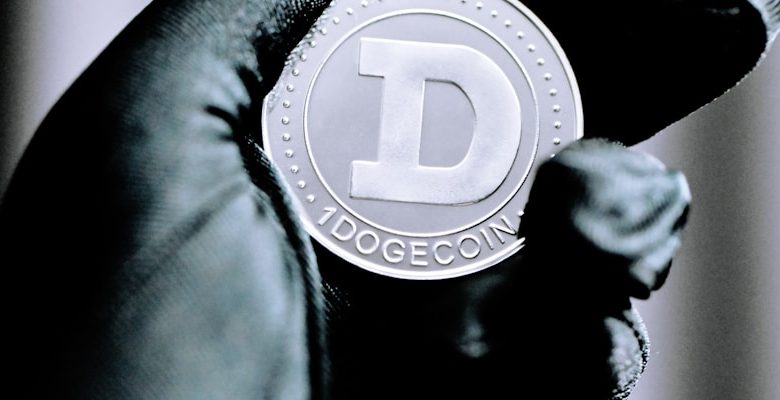How DeFi Is Empowering Users with Financial Sovereignty

- Understanding the concept of DeFi
- The rise of decentralized finance
- Empowering users through financial sovereignty
- Breaking free from traditional financial systems
- The benefits of decentralized finance
- Challenges and opportunities in the DeFi space
Understanding the concept of DeFi
DeFi, short for Decentralized Finance, is a revolutionary concept that is transforming the traditional financial system. Unlike centralized finance, where financial transactions are controlled by intermediaries such as banks and financial institutions, DeFi operates on blockchain technology, allowing users to transact directly with one another without the need for intermediaries. This provides users with greater control over their finances and eliminates the need to rely on third parties for financial services.
One of the key principles of DeFi is financial sovereignty, which empowers users to have full control and ownership of their assets. By utilizing smart contracts and decentralized applications (DApps), users can lend, borrow, trade, and invest in a secure and transparent manner. This eliminates the need for trust in centralized institutions and gives users the freedom to manage their finances without restrictions.
Through DeFi, users have access to a wide range of financial services that were previously only available to a select few. This includes earning interest on their assets through lending protocols, trading digital assets on decentralized exchanges, and participating in liquidity pools to earn rewards. These services are accessible to anyone with an internet connection, enabling financial inclusion for individuals who were previously excluded from the traditional financial system.
Overall, DeFi is revolutionizing the way people interact with financial services by providing a decentralized and inclusive alternative to traditional finance. By understanding the concept of DeFi and embracing its principles of financial sovereignty, users can take control of their finances and participate in a more open and transparent financial ecosystem.
The rise of decentralized finance
Decentralized finance (DeFi) has been gaining popularity in recent years as users seek more control over their financial activities. DeFi offers a new way for individuals to access financial services without relying on traditional institutions. One of the key advantages of DeFi is the ability for users to interact directly with smart contracts on blockchain networks, cutting out the need for intermediaries like banks or brokers.
By leveraging DeFi platforms, users can engage in activities such as lending, borrowing, trading, and earning interest on their assets. These platforms are open to anyone with an internet connection, allowing for greater financial inclusion and accessibility. Moreover, DeFi protocols are often more transparent and secure than traditional financial systems, as transactions are recorded on a public ledger that is immutable.
The rise of DeFi represents a shift towards financial sovereignty for individuals, as they no longer have to rely on centralized authorities to manage their assets. Instead, users can take full control of their finances and make decisions that align with their best interests. This empowerment is particularly valuable in regions where access to traditional banking services is limited, giving people the opportunity to participate in global financial markets.
As DeFi continues to evolve and mature, it is likely to play an increasingly important role in reshaping the financial landscape. With its emphasis on decentralization, transparency, and accessibility, DeFi has the potential to democratize finance and empower users around the world. By embracing this new paradigm, individuals can take control of their financial futures and participate in a more inclusive and equitable economy.
Empowering users through financial sovereignty
DeFi platforms are revolutionizing the way users interact with financial services by granting them greater autonomy and control over their assets. This shift towards financial sovereignty empowers individuals to make decisions without the need for intermediaries or centralized authorities.
By leveraging blockchain technology, DeFi protocols enable users to access a wide range of financial products and services, such as lending, borrowing, trading, and earning interest, all without the need for a traditional bank account or financial institution.
Through decentralized finance, users are no longer constrained by geographical boundaries or limited by the operating hours of traditional financial institutions. They can transact with anyone around the world at any time, thus democratizing access to financial opportunities.
Additionally, DeFi platforms offer users greater transparency and security by utilizing smart contracts to automate processes and eliminate the risk of human error or fraud. This increased level of trust allows users to have full visibility into how their assets are being utilized and ensures that transactions are executed as agreed upon.
Breaking free from traditional financial systems
With decentralized finance (DeFi), users are breaking away from traditional financial systems that have long been dominated by centralized institutions. This shift towards DeFi is empowering individuals to have more control over their finances and investments, without the need for intermediaries such as banks or brokers. By leveraging blockchain technology and smart contracts, users can access a wide range of financial services, including lending, borrowing, trading, and more, all in a transparent and secure manner.
One of the key advantages of DeFi is the ability for users to maintain full custody of their assets at all times. This means that individuals are no longer reliant on third parties to hold or manage their funds, reducing the risk of fraud or loss due to central points of failure. Additionally, DeFi platforms operate 24/7, allowing users to access financial services whenever they need them, without being limited by banking hours or geographical boundaries.
Another benefit of DeFi is the potential for greater financial inclusion, as anyone with an internet connection can participate in these decentralized networks. This opens up opportunities for individuals who may not have had access to traditional banking services, due to factors such as location, income level, or lack of identification documents. By democratizing access to financial services, DeFi is helping to level the playing field and give more people the opportunity to build wealth and financial independence.
Overall, DeFi is revolutionizing the way we think about finance, by putting the power back into the hands of the individual. With greater control, transparency, and accessibility, users can now take charge of their financial futures like never before. As the DeFi ecosystem continues to grow and evolve, more people will have the opportunity to break free from traditional financial systems and embrace a new era of financial sovereignty.
The benefits of decentralized finance
Decentralized finance, or DeFi, offers a wide range of benefits for users seeking financial sovereignty. One of the key advantages of DeFi is its ability to provide users with greater control over their funds. By eliminating the need for intermediaries such as banks or financial institutions, users can access financial services directly through decentralized platforms. This not only reduces the risk of censorship or manipulation but also allows for faster and more efficient transactions.
Another benefit of DeFi is its inclusivity. Traditional financial systems often exclude individuals who do not have access to banking services or live in underbanked regions. DeFi, on the other hand, can be accessed by anyone with an internet connection, opening up a world of financial opportunities for people around the globe. This inclusivity can help empower marginalized communities and promote financial equality.
Additionally, DeFi offers users the opportunity to earn passive income through various investment opportunities such as staking, yield farming, and lending. By participating in decentralized protocols, users can earn rewards in the form of interest or fees, allowing them to grow their wealth over time. This passive income can provide users with financial stability and independence, ultimately leading to greater financial sovereignty.
Overall, decentralized finance is revolutionizing the way individuals interact with the financial system. By providing greater control, inclusivity, and opportunities for passive income, DeFi is empowering users to take control of their finances and achieve greater financial sovereignty.
Challenges and opportunities in the DeFi space
As with any emerging technology, the decentralized finance (DeFi) space comes with its own set of challenges and opportunities. One of the main challenges faced by users in the DeFi space is the high level of technical complexity involved in interacting with DeFi protocols. This complexity can be a barrier to entry for many users who are not familiar with blockchain technology and smart contracts. However, this challenge also presents an opportunity for developers to create more user-friendly interfaces and tools that can make DeFi more accessible to a wider audience.
Another challenge in the DeFi space is the issue of security. Due to the decentralized nature of DeFi protocols, there is a higher risk of smart contract vulnerabilities and hacks. This risk can deter users from fully engaging with DeFi platforms. However, it also provides an opportunity for developers to prioritize security in their projects and implement robust auditing processes to protect users’ funds.
One of the key opportunities in the DeFi space is the potential for financial inclusion. DeFi protocols have the power to provide financial services to individuals who are underserved or excluded by traditional banking systems. By enabling users to access lending, borrowing, and trading services without the need for a middleman, DeFi can empower individuals to take control of their own finances and participate in global financial markets.



